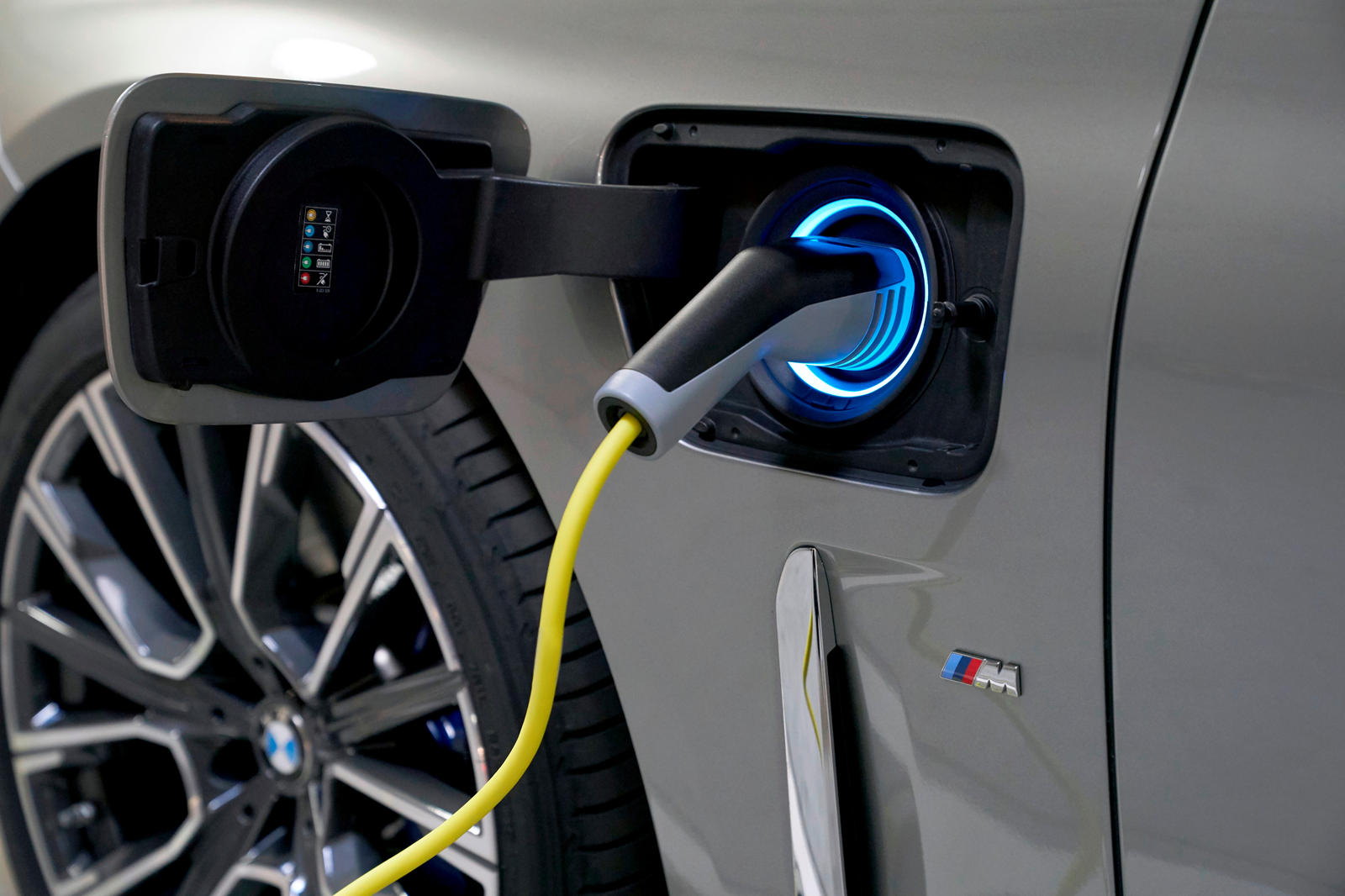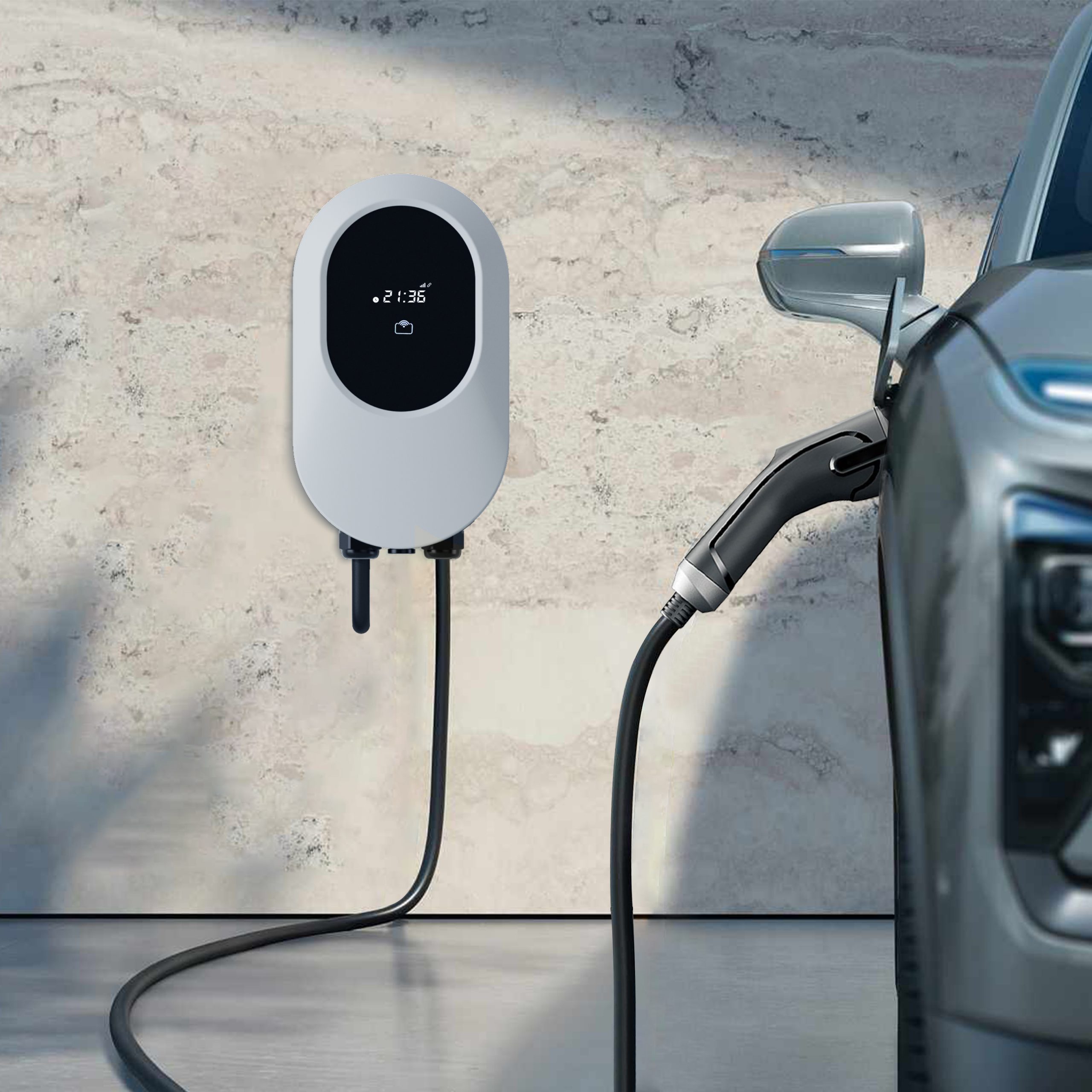Powering Your Journey: NorthCharge's AC EV Charger
Plug into efficient and sustainable charging with NorthCharge’s AC EV chargers. Engineered to provide consistent, dependable power for your electric vehicle (EV), our AC charging solutions help you transition to a sustainable lifestyle.
In the case of electric vehicles, the converter is built into the vehicle. It’s called an “onboard charger,” but it’s a converter. It converts alternating to direct current and supplies it to the vehicle’s battery. Today, this is the most common charging method for electric vehicles, and most chargers use alternating current (AC).
What is AC Charging?
AC (Alternating Current) charging, often called Level 1 or Level 2, is the most common type of EV charging. It utilizes your home’s existing electrical supply to charge your EV.
Level 1 AC charging employs a standard 120-volt outlet, delivering between 2 to 5 miles of range per hour—perfect for overnight charging. Level 2 AC charging, on the other hand, uses a 240-volt outlet (like your clothes dryer) and provides 10 to 60 miles of range per hour, depending on the EV and the charger.
A Closer Look at Our AC EV Chargers
Our AC EV chargers are thoughtfully designed to provide maximum efficiency, safety, and ease of use. They are compatible with all-electric vehicles and are tested to endure extreme weather conditions. Moreover, our AC EV chargers have an intuitive interface to monitor and control the charging process.
Whether it’s a compact EV for city commutes or a high-performance electric SUV, our AC EV chargers will fuel your journey more efficiently. Moreover, NorthCharge is constantly innovating to keep up with the dynamic needs of EV users. We are committed to pushing boundaries and setting new benchmarks in the EV charging industry.
NorthCharge offers a range of versatile AC EV chargers designed to fit into your life, delivering reliable power wherever and whenever you need it.
AC vs. DC Charging: Which is Best for Electric Vehicles?
Electric vehicles can use two types of batteries. The two types are Alternating (AC) and direct (DC) power. The grid power is always alternating current (AC). However, batteries like your electric vehicle can only store direct current (DC). As a result, most electronic devices have a converter built into the plug.

When you charge a device like your smartphone, the plug converts AC power to DC power, which you may not realize. Electric vehicle charging via alternating current.
In the case of electric vehicles, the converter is built into the car. It’s called an “onboard charger,” but it’s a converter. It converts alternating to direct current and feeds it into the car’s battery. Today, this is the most common charging method for electric vehicles, and most chargers use alternating current (AC).
Electric vehicle DC Charging
As we’ve seen, grid power is always alternating current. The location where the AC power is converted (inside or outside the car) distinguishes AC charging from DC charging. In contrast to AC chargers, DC chargers house the converter within the charger itself. That is, it can supply power directly to the car’s battery and does not require.

DC Charging at Home: Is It Right for You?
While AC charging is the common choice for home installations, it can be more complex and costlier than AC options. It’s also worth noting that the charger and your vehicle must be compatible.
NorthCharge can provide expert guidance on home DC charging options to help you make an informed decision.
AC EV Charging Services: Why NorthCharge?
NorthCharge stands apart in the EV charging industry, offering premium AC EV services and products. Our AC EV chargers boast impressive longevity, easy operation, and advanced safety features.
With dedicated support and comprehensive installation guidance, NorthCharge ensures customers a smooth, hassle-free charging experience. Trust in our expertise to power your journey toward a sustainable future.
FAQS
A: AC charging uses Alternating current from your home’s power supply, whereas DC charging uses Direct Current, allowing for faster charging speeds.
A: No, as DC Charger requires 480Volts current, and all houses in North America can take current unto 220V unless the residential location has a commercial-level electric supply.
A: NorthCharge’s AC EV chargers are compatible with almost all-electric vehicles. Always check your vehicle’s manual for specific charging capabilities.
A: With proper care and maintenance, our AC EV chargers are designed to last many years, supporting countless charging cycles. Also, NorthCharge AC Chargers for homes come with 2 years warranty and can be extended with a minor additional charge.
A: Our AC EV chargers are made using smart app control that allows you to monitor and control the charging process wherever you are.
A: Our AC EV charger connectors are designed to be universally compatible with all electric vehicles that use a standard J1772 charging port.
A: Absolutely! Our AC EV chargers are built to withstand various weather conditions, making them suitable for indoor and outdoor installations.
Drive Towards a Sustainable Future with NorthCharge!
With an unyielding commitment to excellence and innovation, NorthCharge is your trusted partner in your journey toward sustainable mobility. Our AC EV chargers are designed to deliver unparalleled performance and reliability, ensuring you get the most out of your electric vehicle.
Whether you’re new to the EV world or an experienced user, our comprehensive range of products and dedicated support team ensure a seamless and efficient charging experience. Embrace the freedom of electric vehicles powered by the dependability of NorthCharge’s AC EV charging solutions.
Take a decisive step towards a greener future. Choose NorthCharge – because every journey matters, and every charge counts.
